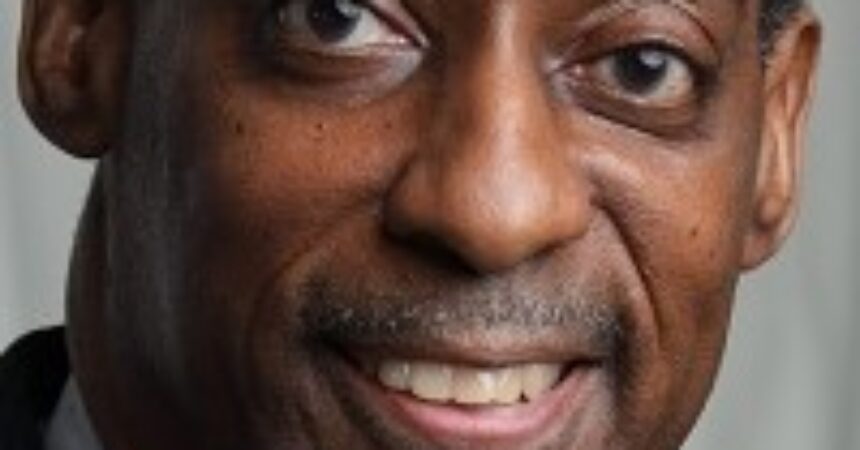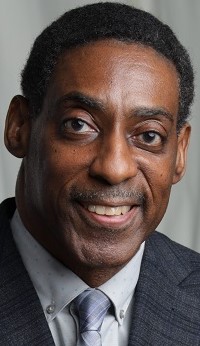
New generation of leaders

Michael Jordan is arguably one of the best professional basketball players in the history of the NBA. Among his many accomplishments during his illustrious career, Jordan was Rookie of the Year, five-time NBA MVP, six-time NBA champion, six-time NBA Finals MVP, and NBA Hall of Fame inductee.
Jordan’s final game as a player was on April 16, 2003, where he finished with 15 points in a loss to the Philadelphia 76ers. “Now I guess it hits me that I’m not going to be in a uniform anymore—and that’s not a terrible feeling,” Jordan said afterward. “It’s something that I’ve come to grips with, and it’s time. This is the final retirement.”
Jordan was a phenomenal athlete with a thrilling combination of grace, speed, power, artistry, and competitive desire. Yet Father Time was the only opponent the then-40-year-old Jordan could never overcome. There are current players, like Jordan, who are competitive past their basketball prime, but physical skills will eventually decline, and all players will suffer the same fate: retirement. While a 40-year-old Jordan is considered old by professional sports standards, he would be regarded as relatively young as an elected politician.
But Father Time respects no one, and he ultimately catches up with all of us. Just as Jordan concluded it was time to “hang it up,” Utah Sen. Mitt Romney made the same decision as he recently announced that he will not seek a second term. Romney emphasized the need for a new generation of leadership. “At the end of another term, I’d be in my mid-80s,” Romney, 76, said in an interview. “Frankly, it’s time for a new generation of leaders. They’re the ones that need to make the decisions that will shape the world they will be living in.”
A true leader understands they cannot be held captive by their pride, ego, fame, and thirst for power when an influential and productive career has run its natural course, and it becomes time to pass the baton to the next generation. In a rare move, former Justice Stephen Breyer retired from the Supreme Court, allowing President Biden to appoint a successor who could serve for decades.
There was not a major ideological shift when the 51-year-old Ketanji Brown Jackson replaced the 83-year-old Breyer, but rather a critical generational and cultural shift that gives a fresh voice speaking on behalf of a diverse nation. It is the generational and cultural shift that causes Republicans to feel threatened.
Young people can be a formidable voting bloc in elections if they mobilize across racial and party lines. Unsurprisingly, young conservatives feel abandoned by the Republican Party when evidence shows they are targets of the same voter suppression tactics used against minority voters. In Texas, Republicans introduced a bill that would ban all college voting centers and drop boxes. In Florida, the governor approved a bill making it more difficult for third-party voter registration organizations to conduct outreach to young people. And in Idaho, Republicans passed a bill to ban student ID’s from being used to register to vote.
We no longer live in times where each generation will do better than the previous one. As our nation moves from one era to the next, the idea of the infamous American dream is seen only as a pipe dream by many millennials and members of Generation Z. They have a right to feel cynical about their future with the current generational divide and the baby boomers who maintain political and economic power while holding little interest in the future quality of life for younger generations. The skyrocketing cost of college tuition and houses make future homeownership and higher education unattainable for many Gen Zers.
The future safety of our schools is no longer treated as a national tragedy and is often addressed by prescribing guns in the hands of teachers. Our communities are facing more intense flooding, extreme heat, and vanishing mountain forests and wildlife due to decades of ignoring climate change warnings out of allegiance to the fossil fuel industry. Millennials and Gen Zers are likely stuck with climate change’s effects becoming a natural way of life in the future. The fight for affordable healthcare and decent wage growth are reasons we are seeing a comeback of the labor movement, as evidenced by the United Auto Workers having gone on strike. Even with the increase in corporate profits, corporate greed will always force future generations of workers to fight for inflation-adjusted wage growth.
As baby boomer lawmakers like Mitt Romney continue to age out, will members of Gen Z commit to public service and be trusted defenders of their generation? Will they have enough political opportunities to serve effectively when older elected officials on the state and federal levels don’t know when it is time to pass the baton? With the election of Rep. Maxwell Frost of Florida as the first Gen Z member of Congress, he became an example for others to follow.
David W. Marshall is founder of the faith-based organization, TRB: The Reconciled Body, and author of the book “God Bless Our Divided America”. He can be reached at www.davidwmarshallauthor.com







